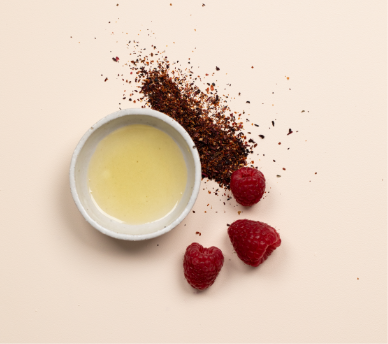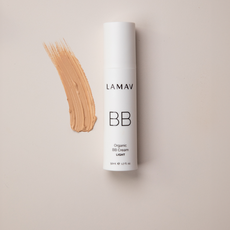An ingredient featured in many age-defence serums and oils, Vitamin A is widely recognised for its numerous benefits in skincare, including improving the appearance of wrinkles, reducing hyperpigmentation, and treating acne. If Vitamin A is new to you or you’re a little weary of its potential side effects, we’ve got you covered. Read on to learn more about this hero ingredient, how to choose the right products and effectively incorporate them into your skincare routine.
WHAT IS VITAMIN A?
Vitamin A is a vital nutrient that supports various functions in the body, including skin health, and has 2 forms:
- Preformed Vitamin A, also known as retinoids
- Provitamin A carotenoids
The body converts both forms into retinol, which is then used by the skin and other organs.
Vitamin A is a powerhouse when it comes to treating numerous skin conditions and ultimately transforming your skin. If you haven’t heard of Vitamin A, you may have heard of retinol or retinoids. Put simply, Vitamin A is the overarching term for:
- Retinal - the form of Vitamin A used in prescription strength formula
- Retinol - a milder form of Vitamin A used in everyday skincare products
THE BENEFITS OF VITAMIN A FOR SKIN HEALTH
When it comes to skin benefits, there isn’t one ingredient that does it all. However, Vitamin A comes pretty close! From wrinkles to acne, all of us can benefit from the right form of Vitamin A in our skincare routine.
Improves the appearance of ageing
One of the most well-known benefits of Vitamin A is its ability to improve the appearance of fine lines and wrinkles. Topical forms of Vitamin A (retinoids) have been thoroughly studied and proven to stimulate collagen production. And we all know how beneficial collagen is to making your complexion appear plump and youthful!
Reduces pigmentation and sun damage
As nice as the warm sun feels on the skin, too much exposure to UV rays can lead to various complexion changes, including hyperpigmentation, age spots, and sunspots. Vitamin A (particularly retinoids) can help to increase skin cell turnover, assisting pigmentation and age spots fade faster, resulting in a more even skin tone. Vitamin A not only reverses the sun’s damage, but also protects the skin from further environmental damage. Prevention is always best!
Treats Acne
Acne is a frustrating and unfortunately common skin condition that affects many individuals. Vitamin A is a proven ingredient that helps to treat active acne, prevent further breakouts and reduce the appearance of scarring and damaged skin from flare ups. Topical retinoids are very effective at exfoliating while removing dirt, oil and dead skin cells that can cause pimples to form.
The stimulation of collagen and elastin production that Vitamin A provides also smoothes the skin to reduce the appearance of bumps and texture, resulting in a more refined complexion.
CHOOSING THE RIGHT VITAMIN A: RETINOL VS BAKUCHIOL
When searching for a suitable Vitamin A skincare product, you may come across Bakuchiol - Vitamin A’s natural alternative. While Retinol is a tried and tested ingredient, it can come with some risks and side effects. There has to be a reason why Retinol is not recommended for use during pregnancy, right? While Vitamin A offers numerous benefits for the skin, it is important to be aware that it often comes with side effects, including skin irritation, dryness, and increased sensitivity to the sun. These side effects are particularly common when first introducing the ingredient into your skincare routine.
Bakuchiol, on the other hand, has been scientifically proven to offer similar benefits to retinol without the potential side effects. Derived from the leaves and seeds of the Babchi plant, bakuchiol is a powerful bioactive used traditionally in Ayurvedic and Chinese medicine to support skin health. Bakuchiol’s rich antioxidant profile helps to brighten and rejuvenate skin, stimulating collagen production and strengthening the skin’s extracellular matrix, fighting fine lines and wrinkles and counteracting the effects of oxidative stress. Containing anti-inflammatory properties, it also assists in the treatment and reduction of pigmentation without any of the harsh side effects of retinol. It is suitable for those with sensitive skin, use during pregnancy and those who are seeking a plant-based retinol alternative.
HOW TO INCORPORATE VITAMIN A INTO YOUR SKINCARE ROUTINE
There are many ways you can incorporate Vitamin A into your skincare routine, and it often comes in the form of serums and oils. Here are our faves when it comes to Natural Alternatives to Vitamin A in skincare.
LAMAV’s Bakuchiol 4% Natural Retinol Alternative
If you’re in serious need of age defence or clear skin, you can’t go past this potent but gentle alternative to retinol. Formulated with 4% Bakuchiol—this bottle is bursting with Ayurvedic and Australian native bio-actives to fight wrinkles, dullness and acne. Over time you’ll improve your skin’s structure, reducing the appearance of fine lines and wrinkles, resulting in a smooth and glowing complexion. 
For best results, use 3 times per week at night. Apply after cleansing and follow up with LAMAV’s Vitamin A Repair Oil to further smooth your skin while providing hydration, repair and protection.
LAMAV’S Vitamin A Repair Oil
This potent vitamin A oil was specifically designed to transform your skin with 2% bakuchiol to boost collagen and elastin production for a smoother, more hydrated complexion. The addition of Raspberry, Baobab and Sea Buckthorn Oils help repair and strengthen the skin’s natural lipid barrier as you sleep. You’ll wake up with firm, plump and hydrated skin.
VITAMIN A PRECAUTIONS
Whether you choose retinol or bakuchiol, it’s important to patch test and gradually introduce your chosen product to avoid unnecessary irritation. Starting with application 1-2 times per week for the first 1-2 weeks and increasing usage to 3-4 times per week as your tolerance level increases is a safe way to introduce Vitamin A products into your skincare routine. Vitamin A products should only be applied at night and it’s important to include sunscreen in your morning routine to avoid sun sensitivity, sun damage or potential irritation during the day!
If you currently have products in your skincare routine that promote cellular turnover, such as AHA’s, it’s best to avoid using these when first introducing your new Vitamin A or Bakuchiol skincare product. Pushing too much exfoliation or cell turnover too quickly can lead to serious irritation, so it’s best to avoid using these products until your skin has settled with your new routine. Even then, it’s recommended that you use Vitamin A on alternative nights to other products that contain exfoliating properties to avoid potential irritation.
Vitamin A can be a valuable addition to everyone's skincare routine. By choosing the right form of Vitamin A, introducing it gradually, and taking necessary precautions, you can enjoy the impressive results that Vitamin A can provide to your complexion.











